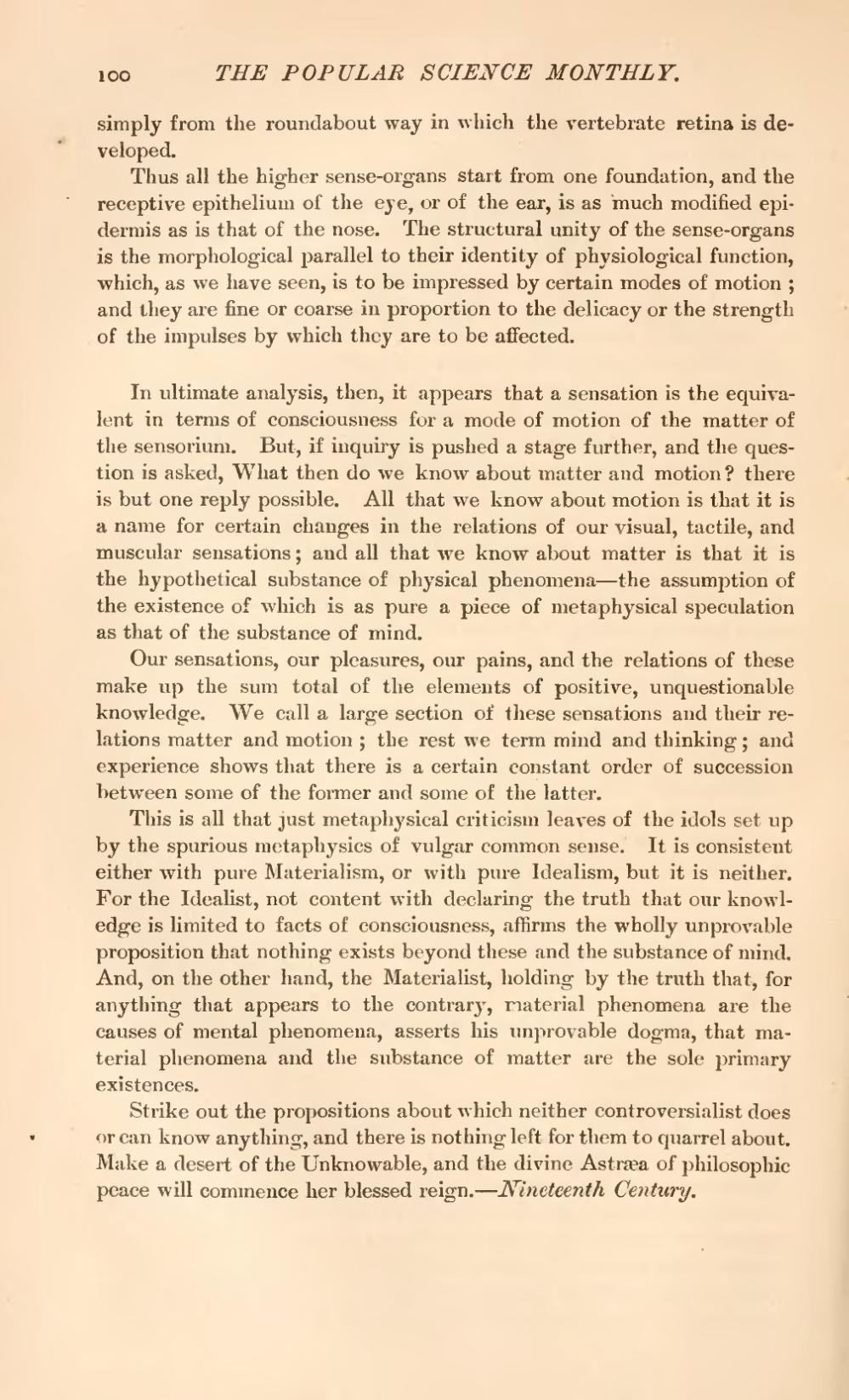simply from the roundabout way in which the vertebrate retina is developed.
Thus all the higher sense-organs start from one foundation, and the receptive epithelium of the eye, or of the ear, is as much modified epidermis as is that of the nose. The structural unity of the sense-organs is the morphological parallel to their identity of physiological function, which, as we have seen, is to be impressed by certain modes of motion; and they are fine or coarse in proportion to the delicacy or the strength of the impulses by which they are to be affected.
In ultimate analysis, then, it appears that a sensation is the equivalent in terms of consciousness for a mode of motion of the matter of the sensorium. But, if inquiry is pushed a stage further, and the question is asked, What then do we know about matter and motion? there is but one reply possible. All that we know about motion is that it is a name for certain changes in the relations of our visual, tactile, and muscular sensations; and all that we know about matter is that it is the hypothetical substance of physical phenomena—the assumption of the existence of which is as pure a piece of metaphysical speculation as that of the substance of mind.
Our sensations, our pleasures, our pains, and the relations of these make up the sum total of the elements of positive, unquestionable knowledge. We call a large section of these sensations and their relations matter and motion; the rest we term mind and thinking; and experience shows that there is a certain constant order of succession between some of the former and some of the latter.
This is all that just metaphysical criticism leaves of the idols set up by the spurious metaphysics of vulgar common sense. It is consistent either with pure Materialism, or with pure Idealism, but it is neither. For the Idealist, not content with declaring the truth that our knowledge is limited to facts of consciousness, affirms the wholly unprovable proposition that nothing exists beyond these and the substance of mind. And, on the other hand, the Materialist, holding by the truth that, for anything that appears to the contrary, material phenomena are the causes of mental phenomena, asserts his unprovable dogma, that material phenomena and the substance of matter are the sole primary existences.
Strike out the propositions about which neither controversialist does or can know anything, and there is nothing left for them to quarrel about. Make a desert of the Unknowable, and the divine Astræa of philosophic peace will commence her blessed reign.—Nineteenth Century.
